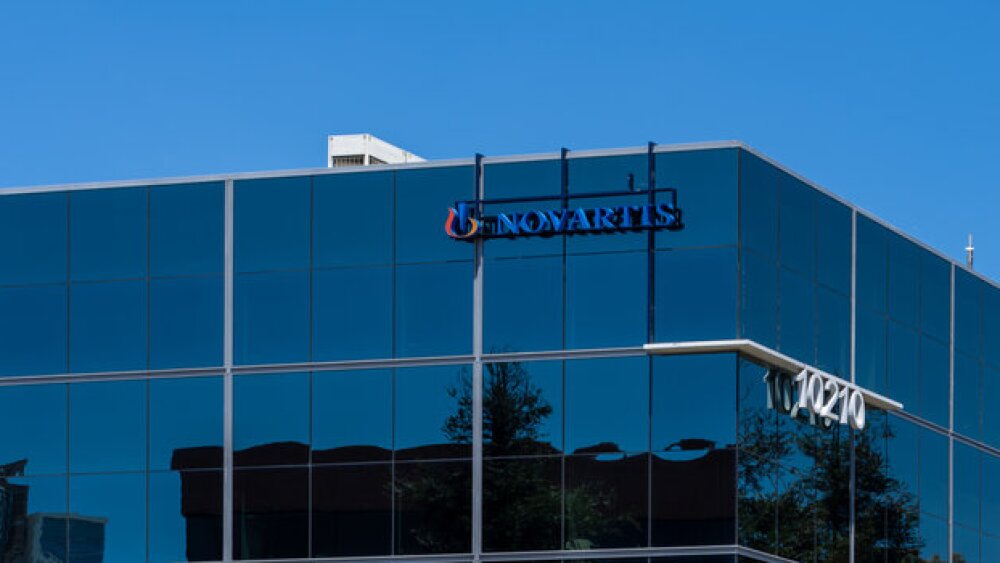The Swiss pharma continues its winning streak with the FDA’s approval of the intravenous formulation of Cosentyx for ankylosing spondylitis, axial spondyloarthritis and psoriatic arthritis.
Pictured: Novartis logo on its office building in California/iStock, JHVEPhoto
The FDA on Friday approved an intravenous formulation of Novartis’ IL-17A antagonist Cosentyx (secukinumab) for the treatment of rheumatic diseases.
This latest approval covers existing indications of Cosentyx, including ankylosing spondylitis (AS), psoriatic arthritis (PsA) and non-radiographic axial spondyloarthritis (nr-axSpA). Previously, Cosentyx was only authorized as a subcutaneous treatment for these conditions.
With Friday’s approval, Cosentyx has become the first intravenous (IV) treatment that specifically targets and inhibits IL-17A and currently the only non-TNF-α IV therapy for these indications, according to Novartis’ announcement.
The IV route of administration will improve treatment access for “a significant portion of patients” with AS, PsA and nr-axSpA, who are not comfortable with self-injections or simply prefer to receive treatments in their healthcare provider’s office, according to Philip Mease, clinical professor at the University of Washington School of Medicine.
“The approval of Cosentyx as an IV formulation is an important milestone for patients because it expands the treatment options available to them with a different mechanism of action than existing biologic IV therapies,” Mease said in a statement.
Cosentyx is a fully human monoclonal antibody that works by targeting and inhibiting the IL-17A cytokine. This mechanism of action allows Cosentyx to suppress the inflammatory pathway, which is typically overactive in rheumatic diseases.
The treatment won its first FDA approval in January 2015 for moderate-to-severe plaque psoriasis and has since become one of the cornerstones of Novartis’ commercial success. In 2022, the immuno asset made nearly $4.8 billion in net sales, representing 5% growth at constant currencies. Novartis attributed its overall growth last year to the strong market performance of several products, including Cosentyx.
Friday’s approval comes amid a clinical winning streak for Novartis, which is now looking to advance many late-stage assets on the regulatory path. Last week, the company announced it is aiming for the FDA’s accelerated approval for its complement inhibitor iptacopan in IgA nephropathy (IgAN) in 2024, supported by strong Phase III data in the APPLAUSE-IgAN study.
Late last month, Novartis reported another Phase III victory, this time for its radioligand therapy Lutathera (lutetium Lu 177 dotatate) which elicited significant improvements in progression-free survival in patients with advanced gastroenteropancreatic neuroendocrine tumors when used in the first-line setting. The company said at the time that it would discuss these results with regulatory authorities.
Novartis is also in the midst of a sweeping corporate realignment, which includes a now-confirmed and approved Sandoz spin-off, as well as an effort to save at least $1 billion by 2024 with thousands of layoffs.
Tristan Manalac is an independent science writer based in Metro Manila, Philippines. He can be reached at tristan@tristanmanalac.com or tristan.manalac@biospace.com.






